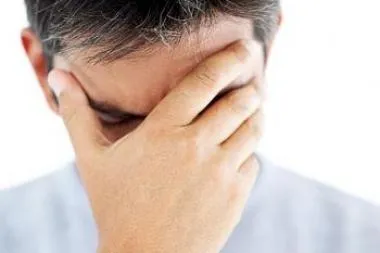Depression, Poor Social Skills Are Linked

Depression is widely accepted as a medical diagnosis, but focusing exclusively on the biological side misses important points about why people become depressed.
Chris Segrin, who heads the UA's communication department, argues for a more expansive understanding of depression, one that merges its biological and social influences.
He has authored a chapter, "Depressive Disorders and Interpersonal Processes," that focuses on the influence of social skills deficits and interpersonal connections.
The chapter has been accepted for publication in the Handbook of Interpersonal Psychology, which will include chapters by other researchers on topics such as interpersonal psychology and human behavior patterns. The book is scheduled to be published during the fall by John Wiley & Sons.
"Researchers haven't been able to isolate a single cause that leads to depression," Segrin said, noting that the effects of interpersonal relationships have "been ignored" historically.
"But, what we are learning is that to have a complete understanding of depression, we must have a strong understanding of what is happening interpersonally to a person," he added.
For his chapter, Segrin focused on research related to social skills, interpersonal responses to depression and "dysfunctional" interactions among family members.
"We find that the relationship between social skills and depression is robust," said Segrin, a behavioral scientist who has conducted numerous studies on interpersonal relationships and mental health, including loneliness and anxiety.
He also found that not only do depressed people sometimes lack social skills, but the very way in which their relationships operate can contribute to increased feelings of depression. This applies to those who are clinically or mildly depressed.
"Depressed people often get into situations that are difficult because their depressive behaviors are really off-putting to other people," Segrin said.
"Naturally, the depressed person can't help that, but they are being cast aside by their social network. This actually maintains their depressive state."
Additionally, those who are depressed have a tendency to feel rejected and often "sabotage" certain situations by arriving at them with built-in negativity.
"Depressed people often are their own worst enemy. They will go into situations that produce the very outcomes they dread," he said. "So depressed people must become aware of this and monitor their own behavior."
But this requires a shift, as seeking treatment or therapy for mental health issues remains taboo, Segrin also noted.
Depressed people must reorient their negative thoughts about treatment, seek out the treatments that work best and improve their interpersonal relationships, he said.
"Other people need to be aware that it takes an extreme amount of patience to live with or be in a close relationship with a depressed person," he said. "And you have to encourage them to seek help and normalize treatments so they do not feel weak or like a failure."
By La Monica Everett-Haynes, University Communications July 8, 2010

